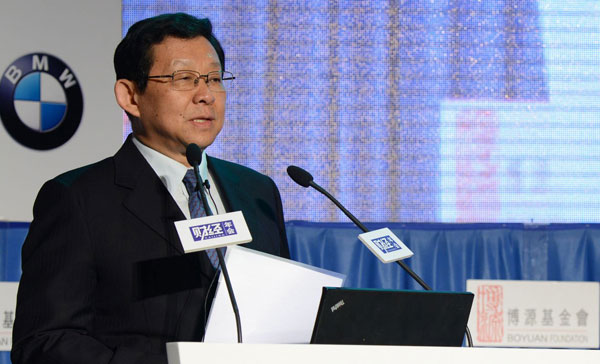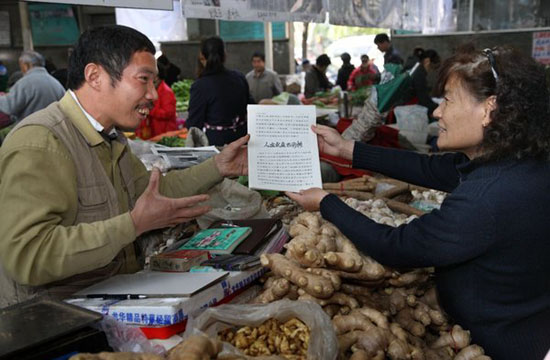
China's economic growth rebound may climb to as high as 8.2 percent in 2013, supported by steady investment expansion amid rebalancing of the country's industrial structure, economists predicted on Wednesday.
They forecast that GDP growth is likely to speed up next year and this may provide more room to deepen reform.
|
 |
|
Commerce Minister Chen Deming speaks at a forum sponsored by Caijing magazine in Beijing on Wednesday. [Photo/China Daily]? |
They were speaking at a forum sponsored by Caijing magazine.
Chen Dongqi, deputy head of the Macroeconomic Research Institute at the National Development and Reform Commission, said: "The fourth quarter's growth may bounce back to 7.8 percent from the three-year bottom of 7.4 percent in the third quarter."
The expansion rate for the year is likely to slow to 7.7 percent in 2012, the lowest since 2005, from 9.3 percent in 2011, Chen said.
He said the rebound will be based on increasing domestic demand for cars, houses and healthcare, as well as investment expansion in road and railway construction.
Cao Yuanzheng, chief economist with the Bank of China, said that exports in 2013 will not be able to lead growth of the world's second-largest economy, so China may still face downside risks.
"One of the effective prescriptions is to stabilize investment, in line with the government's goal to accelerate the urbanization process," he said.
But there are signs of hope.
The Flash HSBC Purchasing Managers' Index in November showed its first reading above 50 - the demarcation line between contraction and expansion - in 13 months, indicating that the manufacturing sector may witness growth this month.
Net income of industrial companies grew by 20.5 percent in October, up from 7.8 percent in September and minus 6.2 percent in August, according to the National Bureau of Statistics.
Ha Jiming, vice-chairman and chief investment strategist of Goldman Sachs' investment management division for China, said the country will continue to go through a U-shaped rebound.
Helen Qiao, chief China economist for Morgan Stanley, said that unless employment figures drop sharply next year, macroeconomic policy will remain stable.
"There may be space for further easing of monetary policy in the second half of next year," she said.
The economists suggested that policymakers pay more attention to fiscal reform.
Yao Jingyuan, a researcher from the Counselors' Office of the State Council, said: "The government can consider raising the threshold of personal income tax as well as reducing the tax rate for small and medium-sized businesses, which is helpful in encouraging domestic consumption."
 Lights on cars and models in Guangzhou
Lights on cars and models in Guangzhou
 Solar greenhouse boosts modern agriculture
Solar greenhouse boosts modern agriculture
 Crew ready for Harbin-Dalian high-speed rail
Crew ready for Harbin-Dalian high-speed rail
 Ginger vendor pursues dream of writing
Ginger vendor pursues dream of writing
 Models shine at Guangzhou auto show
Models shine at Guangzhou auto show
 Auto show arrives at Guangzhou
Auto show arrives at Guangzhou
 A Dongfeng Nissan car at the Guangzhou Auto Show 2012
A Dongfeng Nissan car at the Guangzhou Auto Show 2012
 College graduate becomes farmer
College graduate becomes farmer